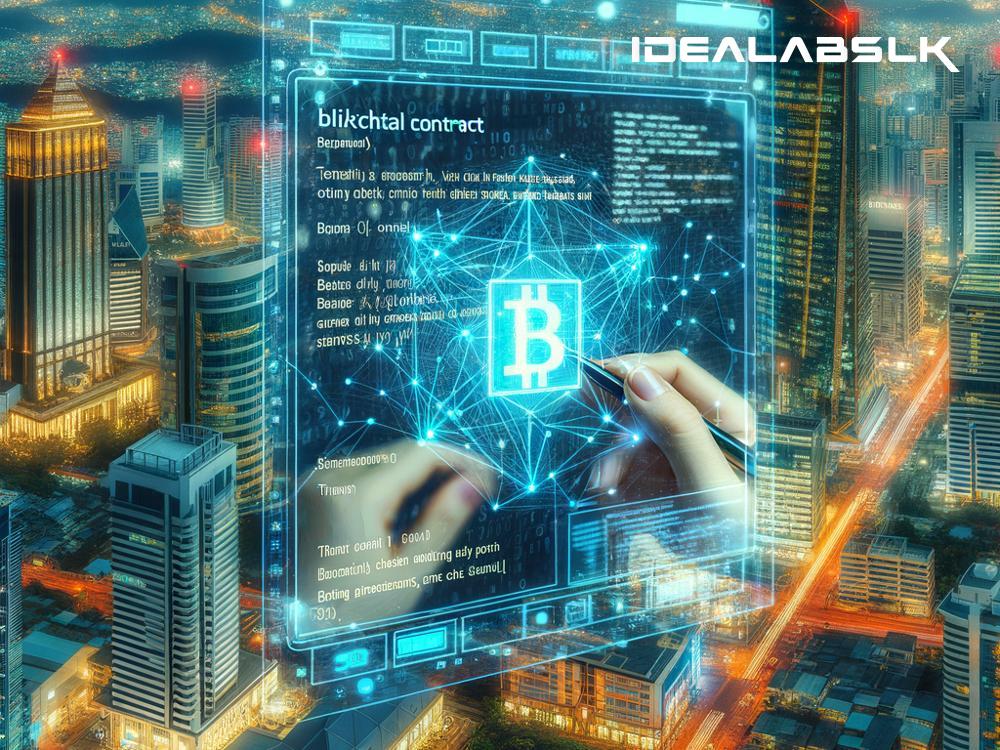How Blockchain is Revolutionizing Real Estate Deals with Smart Contracts
Real estate, the world-renowned giant of investment opportunity, has long been an arena where deals are complex, paperwork is overwhelming, and processes are as slow as molasses. But what if I told you there’s a game-changer on the horizon that could transform these transactions into a walk in the park? Enter Blockchain with its superstar feature: Smart Contracts. This innovative technology is simplifying real estate deals in ways we've barely begun to imagine. Let's break it down into simple English.
Blockchain and Real Estate: A Match Made in Tech Heaven
First things first, what’s blockchain? Imagine it as a digital ledger or a record book. But instead of being stored in one place, it exists on networks of computers worldwide, making it nearly impossible to hack or cheat. Now, combine this with real estate transactions, which are all about records — selling, buying, leasing. Blockchain securely stores all these details, making the process transparent, secure, and efficient.
Smart Contracts: The Real Game Changer
The heart of blockchain's impact on real estate is something called "smart contracts." These aren’t contracts in the traditional sense. Think of them as self-operating programs that automatically execute agreements when conditions are met. No more middlemen, no piles of paperwork, and significantly less time and money spent.
So, How Are Smart Contracts Facilitating Real Estate Transactions?
1. Instant Trust: Real estate transactions rely heavily on trust, traditionally managed by a slew of intermediaries like agents, lawyers, and banks. Smart contracts change the game by creating a secure, transparent environment where agreements are visible and verifiable by all parties involved, building instant trust.
2. Speed and Efficiency: Gone are the days of waiting weeks for paperwork to process. Smart contracts can execute transactions in mere minutes. Once the predetermined conditions are met (for example, payment confirmation), property ownership can change hands almost instantly.
3. Cost Reduction: Smart contracts significantly reduce the need for intermediaries, which, in turn, cuts down on fees and commissions. The automation of these contracts also means savings on administrative and processing costs, making real estate transactions more affordable.
4. Enhanced Security: Blockchain’s encryption makes it incredibly secure. Since smart contracts run on this platform, they inherit this security feature, minimizing the risk of fraud, unauthorized access, and tampering with the contract details.
5. Transparency: Every transaction on blockchain is recorded in a way that’s transparent and easy to track. This ensures all parties are informed and can view the transaction history, making the process more open and transparent than traditional methods.
6. Paperless Process: In a world increasingly concerned with environmental sustainability, the shift to digital contracts is more than a convenience; it’s a necessity. Smart contracts are completely digital, reducing the need for paper and contributing to environmental conservation efforts.
The Future is Now
Considering these benefits, it's clear that blockchain and smart contracts are not just fleeting trends. They're on track to revolutionize how we handle real estate transactions. However, it's essential to note that for all its potential, the integration of blockchain into the real estate market is still in its early stages. Regulatory, legal, and technological challenges need to be addressed.
Moreover, widespread adoption will require a significant cultural shift within the industry. Professionals and clients alike will need to become familiar with and trust this technology. Education and transparent regulation will be crucial in overcoming skepticism and harnessing the potential of blockchain and smart contracts in real estate.
Conclusion
Blockchain technology, through the use of smart contracts, promises a future where real estate transactions are faster, cheaper, more secure, and more efficient. As this technology continues to evolve and its adoption within the industry grows, we can expect a real estate revolution that makes property transactions accessible to more people than ever before. The road ahead is exciting, but it requires a collective effort from technologists, real estate professionals, and regulatory bodies to realize its full potential.
So, when you next think of buying a house or investing in property, imagine a world where a few clicks on your smartphone could seamlessly secure your dream home. Welcome to the future of real estate transactions, powered by blockchain and smart contracts.

